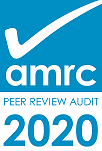The Crohn’s in Childhood Research Association (CICRA) is a national registered charity founded in 1978. CICRA’s mission is to advance knowledge of childhood inflammatory bowel disease (IBD), in particular Crohn’s disease and Ulcerative colitis, through:
- Supporting several research funding streams – which currently include Research Fellowships, PhD Studentships, Project Grants and some educational bursaries. The aim is to finance high quality, peer reviewed medical research and disseminate the results.
- Providing effective education for patients, their relatives and the public in the problems related to these disorders.
- Providing support for members, families and health care professionals through the sharing of understanding and information about IBD, facilitating communication within the membership and organising IBD family information days throughout the UK.
Why is CICRA needed?
The Crohn’s in Childhood Research Association is the national registered charity committed solely to improving the lives of children and adolescents suffering from Crohn’s disease and Ulcerative colitis, two of the most important diseases in a group of illnesses known collectively as IBD.
Childhood IBD is little known to the general public despite the fact that over the last 45 years there has been a dramatic increase in the number of children affected by this condition. Crohn’s disease and Ulcerative colitis are chronic conditions for which there is still no known cause or cure and are characterised by periods of remission and relapse. It is now estimated that there are more than 500,000 patients of all ages diagnosed with IBD across the UK and that of the newly diagnosed 25% are under 18 and 5% of those are under 5 years of age.
IBD has only been seen in children since around the mid 70s. When CICRA was formed in 1978 there were very few general paediatricians in a position to diagnose or treat these children without the help of a gastroenterologist treating adults with the condition. CICRA’s first mission therefore was to give young doctors the opportunity to train in paediatric gastroenterology. In 1982 CICRA set up the first UK Paediatric Gastroenterology Laboratory in London.
What type of research does CICRA fund?
This falls into four categories:
- 3 year Clinical/Research Fellowships
- 3 year PhD Studentships
- 1 – 2 year Project Grants
- Small bursary awards (at the discretion of the Trustees)
A Research Fellowship is a clinical/scientific training post for paediatricians in training who are seeking to specialise in paediatric gastroenterology. Many of the leading paediatric gastroenterologists in the UK have been trained through this scheme.
PhD studentships are to encourage young scientists to develop an interest in IBD whilst carrying out a 3-year research project to gain their PhD.
Project grants are for either a single project or as part of a larger ongoing project.
Bursary grants up to £400 are awarded to UK based health professionals (trainees, IBD nurses and final year medical students involved in IBD research). These awards are to assist with cost of attending scientific/medical meetings. Preference is given to those presenting their own paediatric IBD work or for attending IBD related training courses.
An annual £1000 bursary grant is awarded to trainee paediatric gastroenterologists towards travel to international scientific/medical meetings or as a Start-up grant for a pilot study.
How does CICRA support its research activity?
Applications for grants in the three main funding streams are advertised on an annual basis. The level of research is determined by the funds available to the Trustees and the recommendations of the CICRA Advisory Panel. CICRA keeps a reserve account to cover all grants awarded.
Who may apply for a grant?
Applications for the Fellowships are invited from any institution in the UK who has the infrastructure, ability and qualified staff to supervise the training in both clinical and scientific training in childhood IBD.
Applications for a PhD studentship are invited from any department / supervisor in the UK with suitable laboratory facilities and are qualified to supervise the three year PhD student in paediatric IBD.
Project grants are open to any UK based qualified person carrying out, or wishing to carry out, a specific line of research into IBD.
How are the awards assessed?
With the exception of the Small Bursary Awards, all applications undergo strict peer review using the CICRA Advisory Panel and external referees from this country and overseas. The CICRA Advisory Panel is made up of eminent scientists and clinicians specialising in gastroenterology. The process of grading and contact with referees and CICRA Advisors is carried out from the CICRA office with external referee comments and gradings presented to the Panel before their annual meeting. The CICRA Chair, Vice Chair or one Trustee attend the meetings to observe and answer any queries. The Chair of the Advisory Panel makes a recommendation on funding to the Board of Trustees who then make the final decision.
The Association of Medical Research Charities
CICRA is a member of the AMRC and abides by the AMRC statements on ‘University Funding’ and the ‘Position statement on the Use of Animals in Research’ (www.armc.org.uk).

